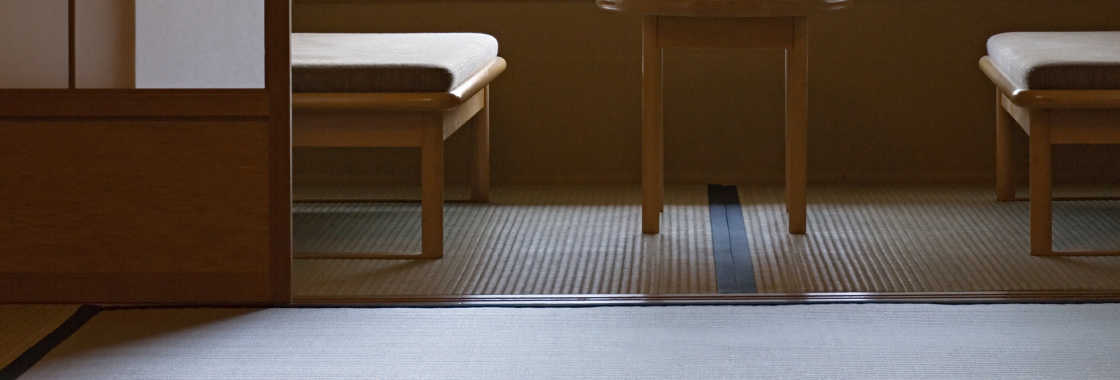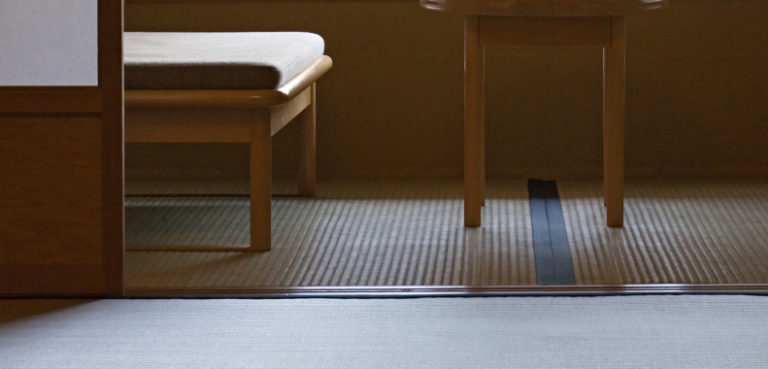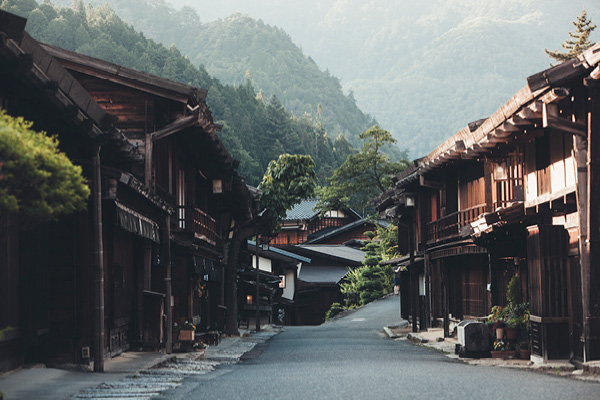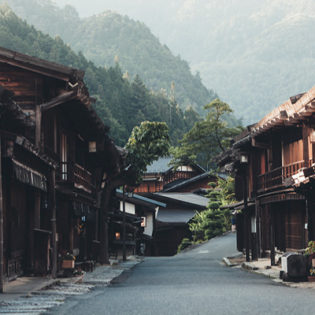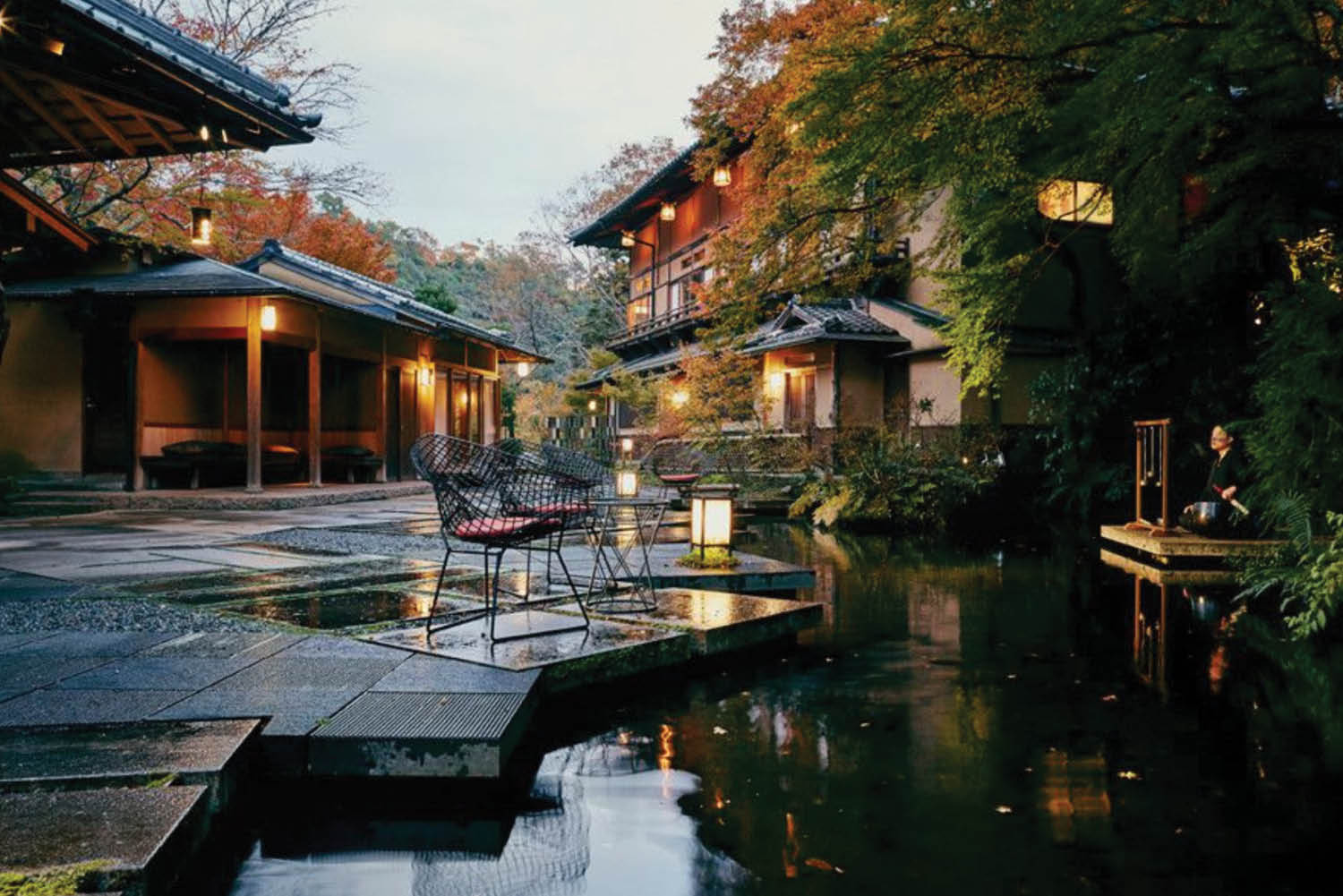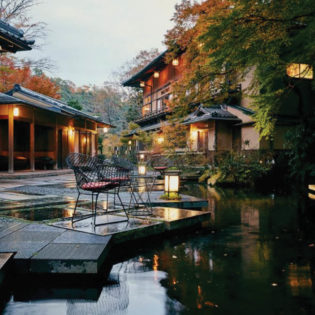Travelling in Japan gives tourists the chance to experience a whole new world of culture, food and natural wonders. If you’ve already got Japan’s cherry blossoms on your hit list, a stay in one of Japan’s ryokans is another cultural experience not to be missed.
Staying in a ryokan will give you an insight into Japanese culture that you just won’t get at a huge impersonal hotel. Ryokans embody a deep respect for hospitality and give visitors the opportunity to experience Japanese etiquette firsthand.
What are ryokans in Japan?
A ryokan is a traditional Japanese inn, where visitors have the chance to explore and understand the true culture of Japan. In this type of accommodation, the walls and doors are made from rice paper, and futon beds are rolled out on the tatami floor mats when it is time for rest. The room usually contains a low table where meals are served.
Guests are expected to respect the Japanese custom of removing their shoes before entering a ryokan and slippers are provided for them to wear inside. A robe (called a yukata) is also available for guests to wear during their stay. Yukatas are worn in every part of the ryokan.
Most ryokans have a communal bathing area and a garden for guests to enjoy.
How are ryokans different from hotels?
Ryokans and hotels are both different types of accommodation options you can book in Japan, but that is where the similarities end. A hotel experience in Japan will be much the same as it is around the world; you’ll have a room with a bathroom, modern technologies to enjoy, a mini bar and an optional breakfast included in your stay for an additional cost.
A stay in a ryokan is all about experiencing the best of Japanese hospitality, unwinding from your travels and embracing the zen-like atmosphere. Guests are aware of the etiquette they should follow during their stay and you can expect to find peace and quiet in public areas as well as your room.
You’ll also discover that your meals are usually included in your stay. The tariff is charged per person, not per room as it is with hotel stays, and includes two meals served in the guest’s room; dinner when you arrive and breakfast the next morning. It is a time honoured tradition of the Japanese to welcome weary travellers with carefully prepared meals.
A ryokan isn’t just a place to sleep, but an experience in itself. Most guests plan to spend a significant portion of their day enjoying the facilities.
Do ryokans have onsens?
For the Japanese, cleanliness is highly valued and most ryokans include a large communal bath (called a daiyokujo). It is possible to find guest rooms which have a bathroom attached, but all ryokans will feature a relaxing area in which to bathe.
By definition, an onsen is any bathing area that is fed by a natural hot spring. Some ryokans do have onsens but, if they do not, there is sure to be one nearby.
How to choose a ryokan
As with everything when it comes to travel, it’s best to do a bit of research before choosing a ryokan. There are over 80,000 ryokans across Japan, so if you want a quiet rustic inn that hasn’t seen a foreigner in years, you can find one. Similarly, if you’re after something more modern or luxurious, you’ll find a ryokan to suit.
There are ryokans at varying price points, so your budget may guide you in the first instance. It might seem an obvious thing, but choose a location that is close to the tourist sites that you want to visit. You’ll also want to keep your transit time during the day to a minimum so you can get back to your ryokan to make the most of the baths and relax in between sightseeing.
Check that you’re getting value for money by comparing the meal plans included in your ryokan stay. The quality of food on offer can vary too, so make sure you know exactly what the room price includes. Other things to note are the garden facilities, whether the room has its own private bathroom and whether the ryokan has an onsen on the property.
Best ryokans in Japan
With so many ryokans across Japan; from tiny home stays to larger inns, it’s hard to decide where to stay. These are some of our favourites.
Hoshinoya Tokyo
This modern five star ryokan in Ginza, Tokyo, offers world class opulence with a Japanese aesthetic. Surrounded by upmarket department stores and luxury boutiques, this area is a hotspot for shoppers and very popular for its nightlife. The ryokan is elegant, sophisticated and serene; an oasis amongst the busy Tokyo streets.
Hiiragiya Ryokan
Owned by the same family for six generations, this ryokan in Kyoto is one of Japan’s most beloved traditional inns. Accomodation is modern but reflects the aspects of Japanese architecture and decor that make a ryokan such a peaceful place to stay. Serving exquisite Kaiseki cuisine on handcrafted ceramics, this ryokan has long been a favourite haunt of Japanese writers for its tranquility.
Gora Kadan
With an incredible restaurant serving seasonal, fresh, colourful cuisine, a gym, a swimming pool, a large public spa, an open air onsen and a divine massage treatment room, this ryokan is all about luxury. Rooms look out onto traditional zen gardens, allowing guests the space and freedom to focus on the beauty of nature.
Minamikan
The Minamikan ryokan is over 130 years old and is steeped in tradition. The 14 rooms are all unique and offer guests different aspects of Lake Shinji. The food on the property is prepared by chefs using traditional techniques that have been passed down for generations. There is both an indoor and an outdoor onsen with amazing lake views. This ryokan is a fine place to relax and enjoy your holiday in Matsue.
Ryokan Tanabe
In Gifu prefecture you can stay at this traditional ryokan which has a choice of small and medium sized rooms. Some are without private baths, so request this at the time of booking if it’s important to you. The Hidatakayama hot springs feed into the onsen here and the tubs are comforting and allow guests to feel at one with nature. Enjoy sightseeing in the area; there are lots of walks, markets and historic buildings to explore in the region.
Zaborin
From skiing and snow sports in winter, to hiking, cycling and river rafting in the summer, Hokkaido is all about exploring the outdoors and the Zaborin ryokan offers guests simplicity and beauty in the extreme. Each villa has its own indoor and outdoor private onsen with sensational, unobstructed views, as well as the mod-cons of wifi, TV and bluetooth speakers. The cuisine is of the highest standard too. Chef Yoshihiro Seno is local to the area and showcases local ingredients and cooking styles using the skills he developed working for many years in Japanese restaurants in New York.
